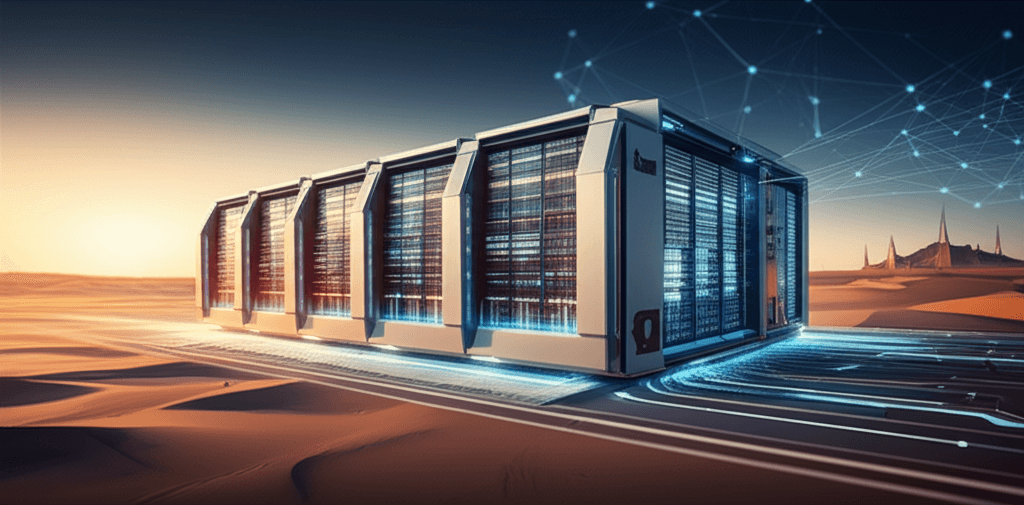Musk's xAI Eyes Saudi Arabia for Gigawatt AI Computing Power
Elon Musk's xAI seeks colossal power in the Kingdom, highlighting Saudi Arabia's strategic pivot to global AI leadership.
July 17, 2025

Elon Musk's artificial intelligence startup, xAI, is reportedly in early discussions to lease significant data center capacity in Saudi Arabia from the newly formed, state-backed AI firm Humain. This potential collaboration underscores the immense and growing demand for computational power in the AI industry and highlights Saudi Arabia's aggressive push to become a global technology hub. The talks, though still in a preliminary phase, signal a strategic move by xAI to expand its infrastructure into regions offering abundant capital and affordable energy, critical resources for training and running sophisticated AI models. The deal also reflects the kingdom's ambition, as part of its Vision 2030 plan, to diversify its economy away from oil by investing heavily in high-tech sectors like artificial intelligence.
The negotiations reportedly involve two distinct possibilities for xAI in Saudi Arabia. One proposal is from Humain, a company launched by Crown Prince Mohammed bin Salman and backed by the nation's Public Investment Fund (PIF).[1][2] Humain has made a massive offer of several gigawatts of data center capacity.[3] To put this in perspective, a single gigawatt facility can consume the same amount of energy as nearly 900,000 homes annually.[3] However, this ambitious proposal is a long-term prospect, as much of Humain's pledged infrastructure has yet to be built.[3][1] Any agreement with Humain would likely provide xAI with computing resources years from now, rather than addressing its immediate needs.[3] A second, more near-term option is also on the table with another company that is already constructing a 200-megawatt facility.[4][3] This smaller but more readily available option could offer a more realistic short-term solution for xAI's pressing computational demands.[3] In either scenario, xAI's strategy is to lease capacity rather than own the physical data centers.[4][3]
The insatiable appetite for computing power is a defining characteristic of the current AI landscape. Companies like xAI, OpenAI, and Meta Platforms are in a fierce race to develop more powerful AI models, which requires processing vast amounts of data.[3] This, in turn, necessitates the construction or leasing of massive, energy-intensive data centers.[4][3] xAI's own supercomputer in Memphis, Tennessee, known as "Colossus," is already considered one of the largest in the world.[5][6] The power requirements for leading-edge AI supercomputers have been doubling roughly every 13 months.[7] xAI is reportedly planning a future data center that could house one million GPUs and consume up to two gigawatts of power.[8][9] To meet these staggering energy needs, xAI has even taken the extraordinary step of purchasing a power plant overseas to be shipped to the US.[8] This global search for power and data center space makes regions with low energy costs and political stability, like Saudi Arabia, increasingly attractive.[10][11]
Saudi Arabia, for its part, is positioning itself as a major player in the global AI race. The kingdom's Vision 2030 initiative is a comprehensive plan to reduce its economic dependence on oil, and technology is a central pillar of this strategy.[12] The Saudi government has committed tens of billions of dollars to AI-related ventures, aiming to become a global AI leader by 2030.[13][14] The establishment of Humain, under the PIF, is a clear manifestation of this ambition.[2][14] Humain aims to develop not only data centers but also its own Arabic-language large language models and other AI solutions.[2][12] The company has already forged partnerships with major US tech giants like Nvidia and AMD, with plans to build AI factories with a capacity of up to 500 megawatts.[15][16] By attracting major AI players like xAI, Saudi Arabia hopes to create a vibrant tech ecosystem, support local innovation, and enhance its global competitiveness.[2][17]
The potential partnership between xAI and a Saudi entity like Humain is a convergence of strategic interests. For xAI, it offers a pathway to secure the vast computational resources needed to compete at the forefront of AI development, potentially at a lower cost and with supportive political conditions.[4][11] This exploration comes as Musk faces some geopolitical and commercial tensions in the United States.[3][11] For Saudi Arabia, attracting a high-profile company led by Elon Musk would be a significant validation of its tech ambitions and could catalyze further investment and talent acquisition.[2] The talks may also be linked to previous Saudi investments in Musk's ventures, suggesting a deepening of ties between the kingdom and the tech billionaire.[3][5] While the Humain proposal is still in its infancy and faces the significant hurdle of building the necessary infrastructure, the discussions alone signal a powerful new dynamic in the global AI industry, where sovereign wealth and national ambition are becoming key enablers of technological advancement.[17][1]
Sources
[7]
[8]
[10]
[11]
[12]
[13]
[16]
[17]